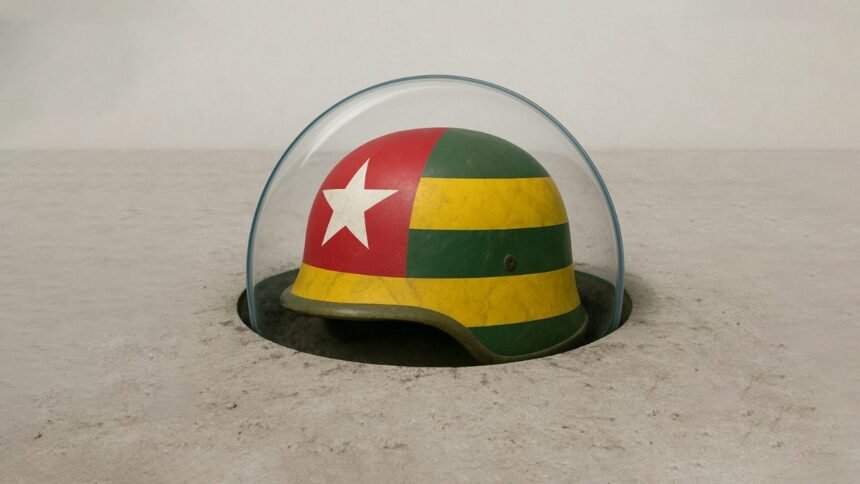LOMÉ – In a region where coups are starting to feel like quarterly events, Togo is trying a new strategy: give the army even more say before it takes things by force. Last week, President Faure Gnassingbé signed off on a controversial constitutional reform that fundamentally changes how the country is governed—and, not coincidentally, how power is transferred.
Gone is the familiar presidential system. In its place stands a parliamentary one, with the twist that the new president will be a figurehead elected by lawmakers, and the real power will sit with a prime minister appointed by the parliamentary majority. Who controls that majority? The ruling Union for the Republic party, of course. And who controls the army? Well, they just got constitutional assurances that their privileges and loyalty to the head of state will be rewarded. You do the math.
Supporters say this reform will prevent coups, arguing that by embedding the military more firmly into the power structure, Togo is inoculating itself against the kind of uprisings seen in Mali, Burkina Faso, and Niger. In those countries, frustrated junior officers—some citing corruption, others terrorism or bad governance—toppled presidents with stunning ease. Togo’s move, then, is to keep its army close and content, rather than alienated and angry.
But critics smell a power grab dressed in parliamentary robes. President Gnassingbé has ruled since 2005, taking over from his father, Gnassingbé Eyadéma, who held office for 38 years before him. That’s over half a century of one-family rule. The new constitutional change doesn’t just reset term limits; it rewrites the script entirely, potentially allowing Faure to remain a central political player even without the title of president. He may well slide into a powerful prime ministerial role, backed by a legislature his party dominates and an army constitutionally tethered to him.
It’s a tactic not unique to Togo. Russia, Turkey, Rwanda, and Uganda have all flirted with various forms of “constitutional engineering” to extend political dynasties or shield strongmen. But in West Africa, where putschists increasingly position themselves as saviors from democratic decay, it’s an unusual kind of preemption.
The Togolese opposition isn’t buying the reform’s democratic credentials. They see it as a deliberate attempt to ensure the military’s loyalty and silence dissent. “This is a civilian coup,” one opposition leader declared. Others argue the reform was rushed through with minimal consultation and that the constitutional shift gives too much power to a legislature that itself lacks legitimacy due to low turnout and accusations of electoral manipulation.
Still, within the military, there are no signs of dissatisfaction. Analysts suggest that the constitutional nod to the army is as much symbolic as it is strategic. By writing the army’s role into law, the Gnassingbé administration offers assurances that their status—and likely their budgets—will remain untouched. In a region where soldiers often feel neglected by distant civilian elites, this could be the kind of affirmation that buys time and loyalty.
What does this mean for democracy in Togo? It depends on your definition. If democracy is simply the absence of tanks in the streets, then perhaps this constitutional tweak counts as a win. But if democracy is about pluralism, accountability, and the peaceful rotation of power, then embedding the military in politics may be a slippery slope.
West Africa has watched this unfold with mild curiosity and some apprehension. While ECOWAS remains distracted with its own internal crises—most notably the Mali-Niger-Burkina Faso breakaway—it has yet to weigh in forcefully on Togo’s reform. That silence, observers say, might be interpreted by other regimes as a green light to “coup-proof” their constitutions before the tanks roll in.
Togo’s gamble may yet pay off. By reforming ahead of unrest rather than reacting to it, Lomé believes it can preserve stability in an increasingly unstable neighborhood. But stability secured through constitutional contortions and military appeasement may prove fragile. What holds for now could unravel with a single budget cut, scandal, or loss of parliamentary majority.
In a place where coups come not with warning shots but WhatsApp voice notes from junior officers, Togo has made its move. It has chosen preemption over prevention, insulation over transparency, and entrenchment over reform. Only time—and perhaps a few more elections—will tell if this gamble turns out to be coup-proofing, or just coup-delaying.










